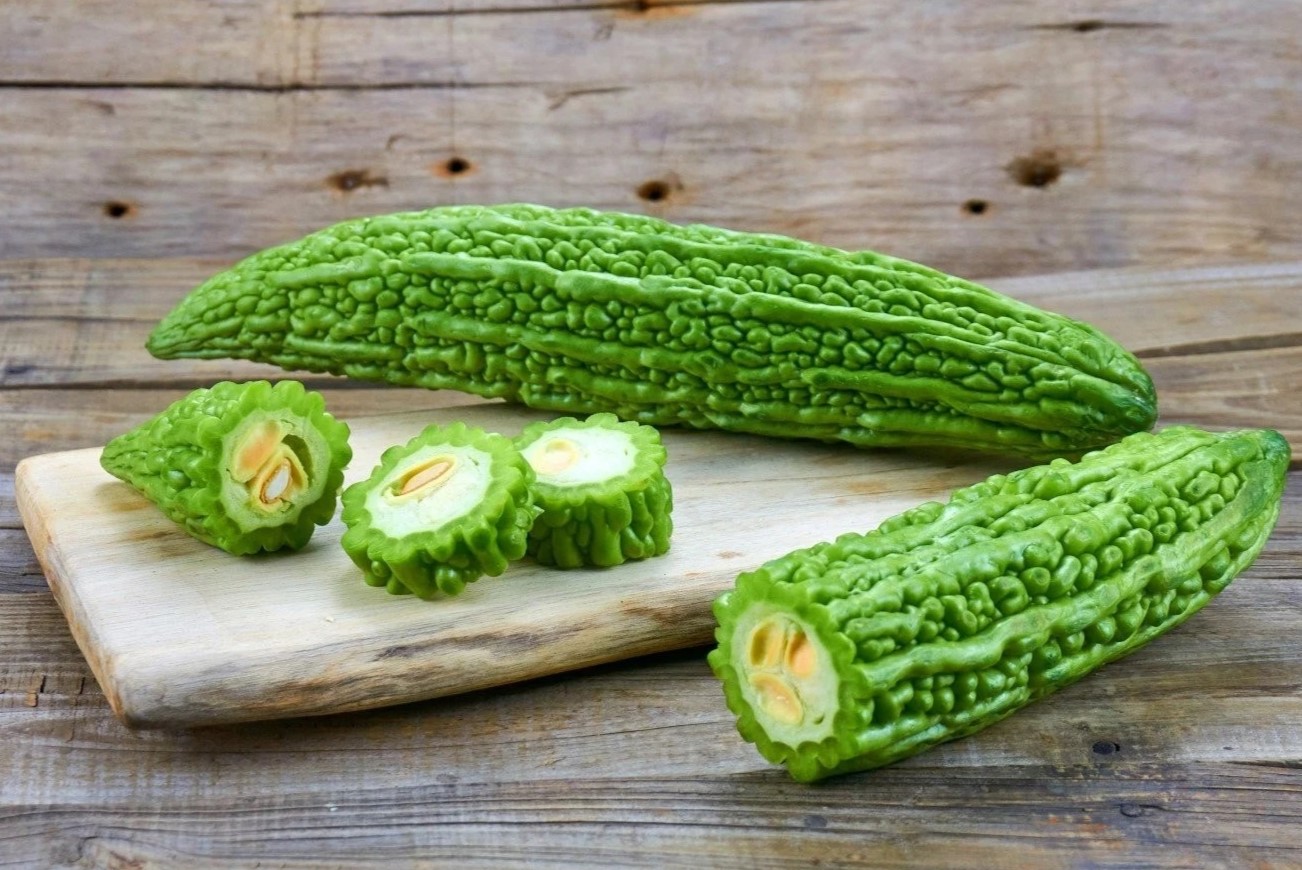
Bitter melon, also known as Momordica charantia, might not be the most popular vegetable, but it packs a punch with its unique taste and numerous health benefits. Ever wondered why this bumpy, green gourd is a staple in many Asian cuisines? Bitter melon is not just a culinary delight; it’s a powerhouse of nutrients and medicinal properties. From aiding in blood sugar control to boosting the immune system, this humble vegetable has a lot to offer. Whether you’re a foodie looking to expand your palate or someone interested in natural remedies, learning about bitter melon can be both fascinating and beneficial. Ready to dive into some intriguing facts about this amazing plant? Let’s get started!
Key Takeaways:
- Bitter melon is a unique fruit-vegetable hybrid with rich nutritional benefits and medicinal uses, making it a versatile ingredient in cooking and holding cultural significance in various regions.
- Modern research is exploring the potential health benefits of bitter melon, including its ability to lower cholesterol, reduce inflammation, and possibly aid in weight management.
What is Bitter Melon?
Bitter melon, also known as bitter gourd or Momordica charantia, is a unique fruit-vegetable hybrid. It is widely used in Asian cuisine and traditional medicine. Let's dive into some fascinating facts about this intriguing plant.
-
Bitter melon belongs to the gourd family, which includes cucumbers, pumpkins, and squash.
-
The plant thrives in tropical and subtropical climates, making it popular in countries like India, China, and the Philippines.
-
Bitter melon has a distinct, warty appearance and can grow up to 12 inches long.
Nutritional Benefits of Bitter Melon
Bitter melon is not just known for its unique taste but also for its impressive nutritional profile. Here are some key benefits:
-
Rich in vitamins A, C, and E, bitter melon supports immune function and skin health.
-
Contains folate, which is essential for DNA synthesis and repair.
-
High in fiber, aiding digestion and promoting a healthy gut.
Medicinal Uses of Bitter Melon
Traditional medicine has long utilized bitter melon for its healing properties. Here are some medicinal uses:
-
Bitter melon is believed to help regulate blood sugar levels, making it beneficial for diabetics.
-
Contains compounds that may have anti-cancer properties, though more research is needed.
-
Used in traditional remedies to treat respiratory conditions like asthma and bronchitis.
Culinary Uses of Bitter Melon
Bitter melon is a versatile ingredient in many dishes. Here are some ways it is used in cooking:
-
Often stir-fried with garlic, onions, and other vegetables in Asian cuisine.
-
Can be stuffed with meat or seafood and steamed or baked.
-
Used in soups and stews to add a unique, bitter flavor.
Growing Bitter Melon
Interested in growing your own bitter melon? Here are some tips:
-
Bitter melon seeds should be planted in well-drained soil with plenty of sunlight.
-
The plant requires a trellis or support to climb as it grows.
-
Regular watering is essential, but avoid waterlogging the soil.
Cultural Significance of Bitter Melon
Bitter melon holds cultural importance in various regions. Here are some interesting cultural facts:
-
In Chinese culture, bitter melon is often consumed during the summer to cool the body.
-
In India, it is used in Ayurvedic medicine to balance the body's doshas.
-
In the Philippines, bitter melon is a staple in many traditional dishes and is believed to have health-boosting properties.
Bitter Melon Varieties
There are several varieties of bitter melon, each with unique characteristics. Here are a few:
-
The Indian variety is darker green with a more pronounced warty texture.
-
The Chinese variety is lighter green and has a smoother, less bumpy surface.
-
There are also hybrid varieties that combine traits from both Indian and Chinese bitter melons.
Bitter Melon in Modern Research
Modern science is exploring the potential health benefits of bitter melon. Here are some findings:
-
Studies suggest that bitter melon extract may help lower cholesterol levels.
-
Research indicates that it may have anti-inflammatory properties.
-
Some studies are investigating its potential role in weight management.
Fun Facts About Bitter Melon
Let's end with some fun and quirky facts about bitter melon:
- Despite its bitterness, bitter melon is often used in sweet dishes in some cultures, like bitter melon candy in Japan.
Bitter Melon: A Hidden Gem
Bitter melon, often overlooked, packs a punch with its nutritional benefits and medicinal properties. This unique fruit, rich in vitamins and minerals, supports immune health, digestion, and blood sugar regulation. Its antioxidant properties help combat inflammation and oxidative stress. Despite its bitter taste, incorporating bitter melon into your diet can offer numerous health advantages. Whether you consume it as a juice, in stir-fries, or as a supplement, this fruit can be a valuable addition to your wellness routine. Understanding its benefits and uses can help you make informed choices about your health. Give bitter melon a try and experience its potential firsthand.
Frequently Asked Questions
Was this page helpful?
Our commitment to delivering trustworthy and engaging content is at the heart of what we do. Each fact on our site is contributed by real users like you, bringing a wealth of diverse insights and information. To ensure the highest standards of accuracy and reliability, our dedicated editors meticulously review each submission. This process guarantees that the facts we share are not only fascinating but also credible. Trust in our commitment to quality and authenticity as you explore and learn with us.


